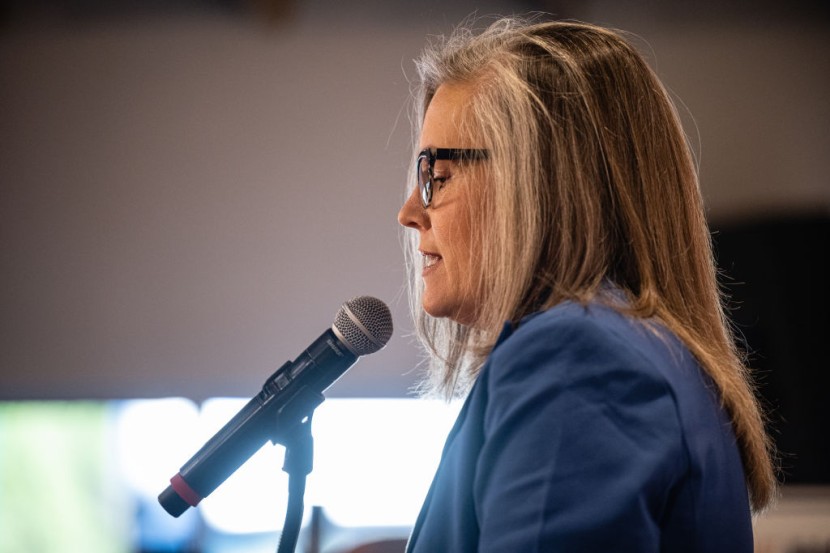
Governor Katie Hobbs of Arizona said this week that her government is ending state property leases that have allowed a Saudi farm virtually unrestricted access to pump groundwater in the arid state of Arizona for years.
The state has terminated Fondomonte Arizona's lease in western Arizona's Butler Valley, according to Democrat Hobbs, and will not renew three further leases there that are up for renewal in the next year.
The governor's office conducted an investigation and discovered that the foreign-owned farm had broken several of the lease's conditions, as reported by The Associated Press.
It was intolerable, according to Hobbs, that the farm "continued to pump unchecked amounts of groundwater out of our state while in clear default on their lease."
Alfalfa is grown in Arizona by Fondomonte Arizona, a division of Saudi dairy giant Almarai Co., and is fed to livestock in the Gulf nation's water-strapped livestock industry.
The Opposition Against State Property Leases
Fondomonte announced through a spokeswoman that it will contest the governor's choice to end the 640-acre (259-hectare) lease it had with Butler Valley. West of Phoenix, amid the rough desert, Fondomonte farmed a total of 3,500 acres (1,416 hectares).
When Fondomonte paid $47.5 million for over 10,000 acres (4,047 hectares) of land in Vicksburg, Arizona, 20 miles (32 kilometers) away from Butler Valley, people took notice.
Since then, Arizona's increasing drought has increased interest in the company's water use as well as more general concerns about foreign-owned farms and groundwater pumping.
Read also: Cocoa Prices Soar, Driving Farmers to Plant More Outside Africa
A List of Infractions
The governor's office listed a number of infractions, including one involving the company's storage of dangerous goods. According to information released by Hobbs' office on Monday, Fondomonte was informed of the violations in 2016, but an inquiry conducted in August revealed that seven years later, the issue had not been resolved. The State Land Department of Arizona had justification to revoke the lease because of this.
The State Land Department opted not to renew three further leases the corporation had in Butler Valley, according to the Arizona governor's office, because of the "excessive amounts of water being pumped from the land - free of charge."
Arizona owns the land, which in Fondomonte's instance had been leased to the firm, and the department is in charge of managing it.
Butler Valley's groundwater is particularly significant because, in theory, state law permits it to be pumped elsewhere. Due to the demand on the water supply and the rapidly expanding population, places like Phoenix are interested in its water.
A state law passed in Arizona in 1980 that was intended to conserve the state's aquifers places limits on how much groundwater can be pumped by cities like Phoenix and Tucson. However, in rural regions, users of water are only needed to register their wells with the state and use the water for "beneficial uses" like farming, which are defined as such.
Additionally, Fondomonte operates farms in the Palo Verde Valley of Southern California, which receives water from the Colorado River, which is in decline. Less attention has been paid to those enterprises.
The governor's decision does not affect all of Fondomonte's farms in Arizona. The Southwest is home to several international businesses that also engage in farming. Al Dahra ACX Global Inc., a company controlled by the United Arab Emirates, cultivates forage crops in Arizona and California and is a significant hay exporter from the United States.
One example of farmland that Almarai and its subsidiaries exploit outside of Saudi Arabia is its holdings in the Southwest. Tens of thousands of acres are farmed there, and Argentina has recently experienced terrible drought conditions as well.
According to the United States, 3 percent of farmland is in the hands of foreign organizations and people. Agency for Agriculture. The majority of Canada's holdings are in the form of forests.
Democratic attorney general of Arizona Kris Mayes commended the governor for taking action against the foreign-owned farm.
After discrepancies in Fondomonte's applications were discovered, Mayes said in April that the state had revoked permits that would have allowed Fondomonte to drill new water wells. On Monday, Mayes referred to the governor's initiatives as a "step in the right direction," but he added that the state ought to have taken action earlier.
Related article: Lincolnshire Commits Generous Funding to Safeguard Endangered Crystal Moss Creature








